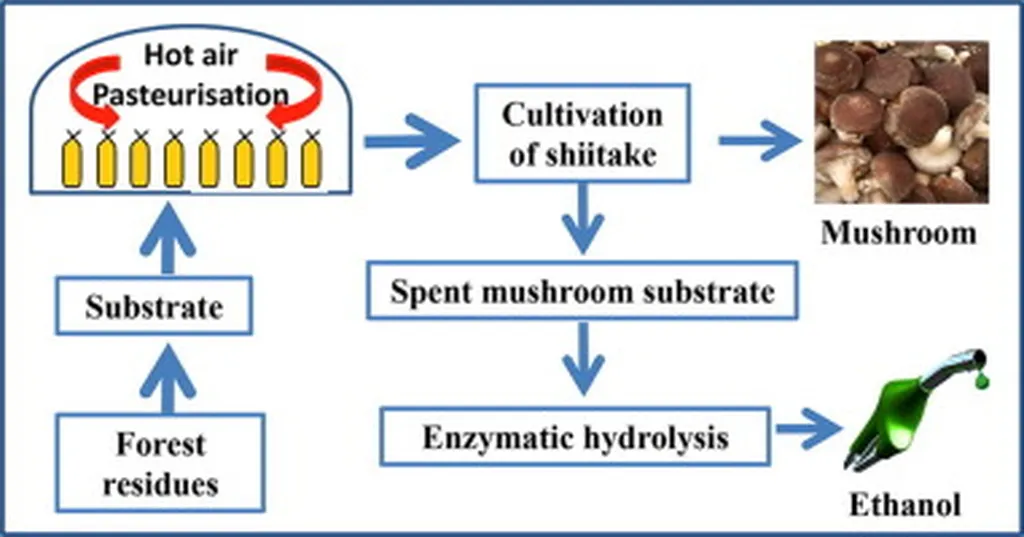In a groundbreaking study published in *Industrial Crops and Products*, researchers have uncovered a novel approach to enhancing cellulosic ethanol production using shiitake mushrooms. The research, led by Shengxu Qi from Anhui Agricultural University, explores how fungal pretreatment of hardwood can reduce its recalcitrance, making it easier to convert into biofuel. This method not only promises to streamline the production process but also opens up new avenues for the agriculture sector to diversify its revenue streams.
The study found that shiitake mushroom cultivation degraded 42.6–47.6% of the lignocellulosic components in hardwood, a significant breakthrough in the quest for more efficient biofuel production. “Shiitake mushrooms demonstrated extensive and selective utilization of degradation products during fructification,” Qi explained. “However, non-utilized molecules accumulated in the spent mushroom substrates (SMS) as pretreatment by-products.”
These by-products, including (L)-dehydroascorbic acid, triglochinic acid, and 5-hydroxy-2-methylchromone, were found to have limited inhibitory effects on downstream bioconversion processes. This is a stark contrast to thermochemical pretreatment methods, which often produce inhibitory by-products that hinder the fermentation process.
The research also revealed that while water extraction minimized the accumulation of these by-products, it did not improve the enzymatic saccharification and fermentation efficiencies. This finding suggests that the by-products derived from shiitake pretreatment are less detrimental to the overall process than previously thought.
The implications for the agriculture sector are profound. By integrating fungal pretreatment into their operations, farmers and agribusinesses could potentially increase the value of their hardwood resources. This could lead to the development of new, sustainable biofuel production systems that are more efficient and environmentally friendly.
As the world continues to seek sustainable energy solutions, this research offers a promising path forward. “This study provides valuable indications for further optimization of shiitake pretreatment towards industrial implementation,” Qi noted. With further research and development, fungal pretreatment could become a key player in the global biofuel industry, shaping the future of agriculture and energy production.
The study, led by Shengxu Qi from Anhui Agricultural University, was published in *Industrial Crops and Products*, offering a glimpse into the future of sustainable biofuel production. As the agriculture sector continues to evolve, this research could pave the way for new opportunities and innovations, driving the industry towards a more sustainable and profitable future.

